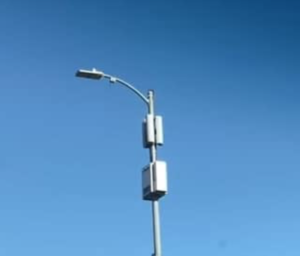Some background.
Lower Macungie has been working for over a year to prepare for rollout of 5G wireless networks. Commissioners identified this as a priority in late 2017. The new cellular network standard is not just about faster smartphones. Higher speeds will also help connect our cars, enable more smart home features, faster emergency services and basically enhance any area where systems need to communicate to each other constantly and with minimum lag. It’s an essential economic growth tool. An area we’ve worked hard to ensure Lower Macungie remains at the forefront of while at the same time addressing community concerns.
Virtually every sector of the economy is dependent on wireless technologies today. It’s clear a nationwide push for this is coming. Realizing this, under the boards direction our staff has been working closely with industry officials to ensure our local regulations work in tandem with deployment goals so 5G can be enabled quickly and efficiently for residents, institutions and local businesses.
As a National priority, the Federal Government intervened as well. In 2018 the FCC revised rules related to the coming rollout. This in some ways superceded the work we were doing locally by limiting fees and setting one size fits all standards. In many ways it duplicated the work we were doing here. The effort still attempted to strike a reasonable balance between national goals, associated one size fits all regulations and local control to keep new facilities out of residents yards. While it places some national standards into place on municipalities, it still preserved local zoning authority over placement of the facilities. The Federal government had a reasonable approach that we could work within to safeguard the local community.
Enter HB1400
In the latest development the Pennsylvania State Legislature has stepped back into the discussion. Albeit late in the game now since previous attempts to pass legislation failed and the federal government has since taken action. The concern raised now by various groups is that proposed legislation takes this standardization too far. Well beyond what was laid out by the Feds. Since the introduction of House Bill 1400 three days ago, the PA Municipal League, the PA State Association of Boroughs, and the PA State Association of Township Commissioners have reviewed the bill and have serious concerns regarding its provisions.
According to a memo provided by the municipal league, H.B. 1400 significantly undercuts local health safety and wellness concerns, expands the size and height of antennas and poles dramatically, and drastically reduces the fees permitted by the FCC Order to the point where they wouldn’t even cover the townships costs. Though some areas of the memo elude to unrelated concerns like rural broadband access which should be addressed in other fashions the memo raises important points.
Internally, Lower Macungie Township staff is reviewing the proposed bill and providing feedback to state officials ongoing. The current bill has raised some questions and we are encouraging state officials to not rush. Locally we have concerns with undefined language in the bill, unclear waiver procedures, lack of abillity to deny facilities in flood areas and indemnity.
I’m going to continue working closely our staff on this issue. The ordinance we worked on locally over the last year struck a better balance between community concerns (which we have heard loud and clear) and deployment of this infrastructure. It kept these facilities out of residential areas adjacent to homes. If HB 1400 moves forward and supersedes our work, we respectfully ask the bills sponsor to include additional language and amendments addressing our concerns. As written now we believe this bill would hamstring local municipalities ability to ensure matters of health safety and welfare of our residents. Although this bill mirrors some of the language we used locally, there are numerous concerning departures. Including deviations from the municipal planning code enumerating land use powers and the responsibility to protect our residents to local government.
Personally I felt the FEC order was sufficient to ensure enough uniformity for a nationwide rollout and that state action is not needed. The State Legislature may opt to disagree. We will follow this closely.


Keep us all informed.